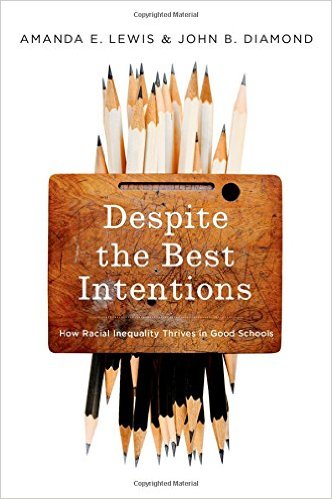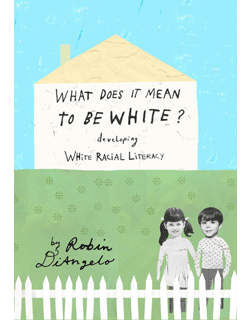Teachers at predominantly white schools, especially those in conservative communities, may be reluctant to discuss race in the classroom. However, it is precisely in these communities that conversations about how race, ethnicity, and other social identities are critical for broadening students worldview.
Here are some ideas on how to have these conversations based on a town hall that a group of teachers and I helped organize at my school in an affluent, predominantly white public school in the suburbs of Chicago.
During the town hall we first asked a panel of diverse students share an experience that exemplified their experience with race or ethnicity in our school community. Then, we asked these students to join teachers who had signed up to attend the town hall to help facilitate discussions with their students.
A special thanks to Robin Vannoy, Robyn Corelitz, Billson Rasavongxay, Noah Lawrence, Cassandra Richardson and Deborah Powell for their ideas and support!
[googleapps domain=”docs” dir=”presentation/d/e/2PACX-1vSyIFqYfGEJI49JxtD_gHJiH7zrZtvybI95GOGLRVXUEhFH7uYBvZHSVMaI3VGOCVMlxkWDTMyzRuQV/embed” query=”start=true&loop=true&delayms=3000″ width=”480″ height=”299″ /]
1. Prepare a Framework
Ask student facilitators and teachers to carefully read articles on race along and strategies for leading difficult conversations from Teaching Tolerance, Harvard Graduate School of Education: Usable Knowledge, and Anti-Defamation League.
2. Ask Students to Complete an Anonymous Survey
|
Statement |
Agree |
Disagree |
| 1. I am a student at Hinsdale Central High School. |
✓ |
|
| 2. I can turn on the television and see people of my race/ethnicity widely represented. | ||
| 3.I can be sure that the curriculum in my classes celebrates the contributions of my race. | ||
| 4. I can criticize our government without being seen as a cultural outsider. | ||
| 5. I can easily buy posters, postcards, picture books, greeting cards, dolls, toys, and children’s magazines featuring people of my race/ethnicity. | ||
| 6. I can easily find groups of friends who understand my cultural/ethnic background. | ||
| 7. I feel I can be myself in class by sharing my views without worrying about being seen by my peers as an outsider. | ||
| 8. I can easily find teachers and other staff members who are of my cultural/ethnic background. |
SOURCE: National Seed Project
3. Discuss why race matters

“Our racial history is part of our present, it is in our structures…in the ways schools are organized, in how neighborhoods are laid out, in the composition of our family trees, in the unconscious stereotypes that get primed when we mentally sort people along racial lines. We walk around with it, and while it is never the only dynamic in the room, it matters.”
4. Establish Ground Rules
- Assume good intentions. Everyone is in the room because they desire to learn from one another.
- Speak from your own experience instead of generalizing (“I” instead of “they,” “we,” and “you”).
- Respectfully challenge one another by asking questions, but avoid personal attacks — focus on ideas.
- Actively speak & listen — community growth depends on expressing & listening to every voice. The goal is not to agree but to gain a deeper understanding.
- Be conscious of body language and nonverbal responses — they can be as disrespectful as words.
SOURCE: EdChange & University of Missouri
5. Suggest Questions but let Students Choose
- Why is it challenging to have conversations about race & diversity?
- To what extent are your cultures & traditions represented in popular culture & at Hinsdale Central?
- In what ways do you have advantages or disadvantages that you did not earn?
- Why might some students remain silent in order to feel safe with peers, in classrooms, or at school?
- How can we help create a community that allows all students to be themselves & share their voice?
6. Scaffold Difficult Conversations

- I’m nervous/scared/uncomfortable to say this… and/but…
- From my experience/perspective as (identity)…
- It feels risky to say this and/but…
- I just felt something shift in the group. I’m wondering if anyone else did.
- I have always heard / thought that…. What are your thoughts on that?
- I have a different perspective because…
Developed by Anika Nailah & Robin DiAngelo, 2013
